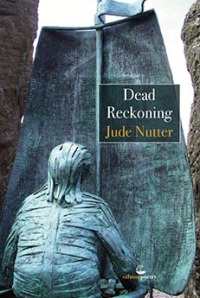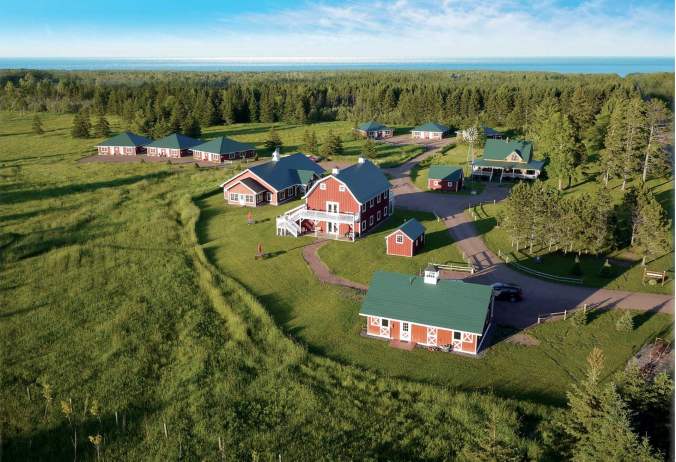… from Salmon Poetry

Dead reckoning—used by navigators to calculate their position using a record of speed, drift, and the direction travelled relative to a last known location—is the metaphor at the heart of Jude Nutter’s fourth collection, where poems are constantly plotting new positions of departure as they reach back into both human and geological history. Deeply philosophical, the sustained, complex narratives of Dead Reckoning stay grounded in (and through) the body, and reach outward from various locations in time and space—the contemplations of fossils and cave art, the landscapes of Europe haunted by war, the feral world of loss, those points in childhood when “Eden” was ruptured by an awareness of sexuality and history. Following the literal and metaphorical reverberations of these journeys, this collection, which is both a record and a guide, asks us to contemplate how we locate ourselves in, and lay claim to, our own lives.
order from: Salmon Poetry, Ireland | Moon Palace | Next Chapter | Magers & Quinn | Amazon | Barnes & Noble | your local bookstore
Finalist for the 34th Annual Minnesota Book Awards 2022

Interview from 36 Finalists Blog
Praise for Dead Reckoning
Dead Reckoning is a collection of high and beautiful seriousness, containing work of exceptional ambition and achievement. Philosophical, unafraid of the big questions (‘And yet why am I here, / father, if I cannot enter?’), Jude Nutter is a poet both well-travelled and well read. Here are poems of collapse and Holocaust, of young love in the Eighties and of love at the end of its long human cycle, all written with an exceptional, cosmopolitan command of language and material. It is part of the very precise genius of this work that Nutter explains how we are each given a body, a buthker, a box, by which we may test and measure our being-in-the-world. In one stunning poem, ‘The Shipping Forecast,’ this generalised box is metamorphised into a specific love-box from which her father removes a ring to place upon the finger of his comatose and dying wife. All of Nutter’s work, no matter how seemingly well-travelled, returns to that inner human circle of love, family memoir and attachment. ‘How is it we can be loved/ so well and remain so famished still?’ she asks in ‘Disco Jesus and the Wavering Virgins in Berlin, 2011.’ This collection, elegant in thought and technique, attempts to answer that question. Jude Nutter has created a work of great beauty, one of the loveliest collections of the poetry year.
— Thomas McCarthy, author of Prophecy, Pandemonium and eight other collections
In Dead Reckoning, Jude Nutter has given us a book of revelation, poems that press wisdom through language, extracting language itself from the dark earth of the body. Beginning in elegy, and ranging across Europe, she unflinchingly opens doors of our deep mortality: natural history and the fossils that move us and human histories of cave paintings, of the Romans, and especially of World War II and the dead of Bergen-Belsen, where the child-poet once lived. By images at once corporeal and luminous, Nutter’s reckonings render narrative, reflection, and beauty as inseparable. This gorgeous collection becomes a guide for how to love the dead beyond memory, a book to be returned to again and again.
— Christina Hutchins, author of Tender the Maker and The Stranger Dissolves
There are lines of surpassing beauty in every one of these poems. Jude Nutter manages the exacting task of writing long while never losing focus on the parts that minutely build up the texture of the whole. She is at once deeply psychological and physical, wielding a naturalist’s vocabulary for our common world made strange by our attention to it. When she describes “the quick veer, the glint-thrill, the solid, flexed silm” of a caught trout, we know we are hearing a master of sound. Underneath the elegies in this book is a frighteningly percipient, alert young girl who does not forget the cruelties of private and public history. Dead Reckoning is a stunning reclamation of that girl and her capacity for love.
— Thomas R. Smith, author of The Glory and Windy Day at Kabekona


